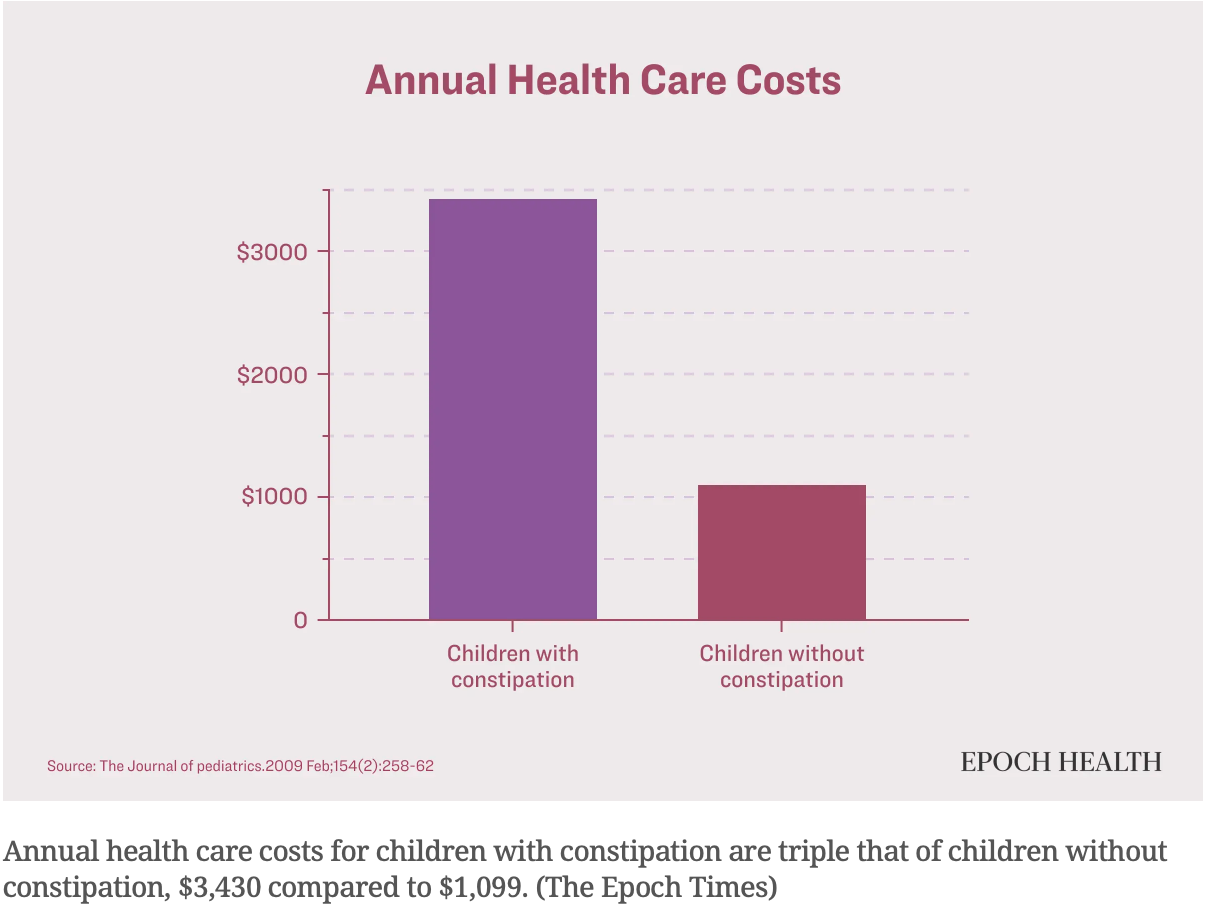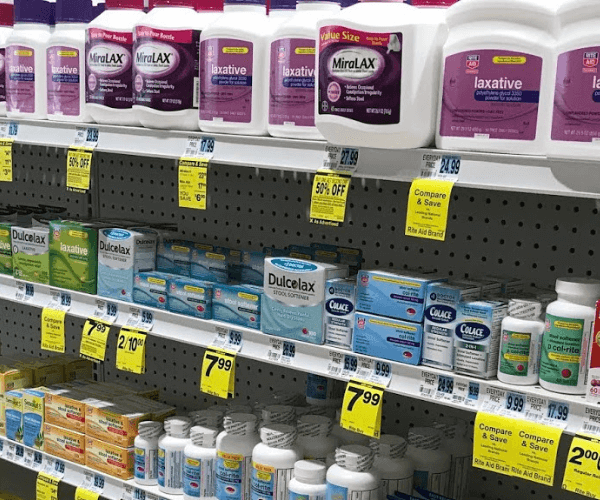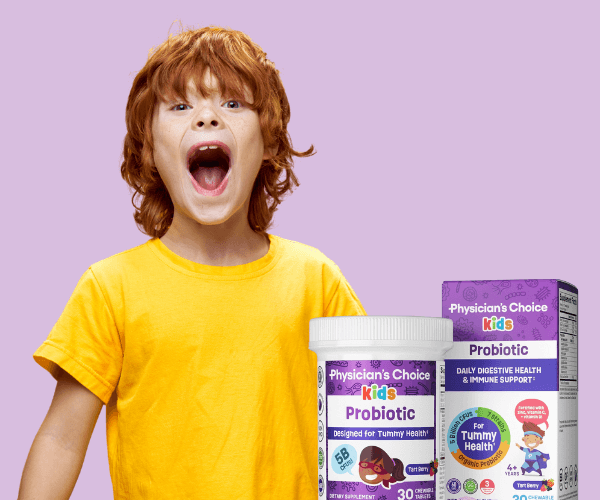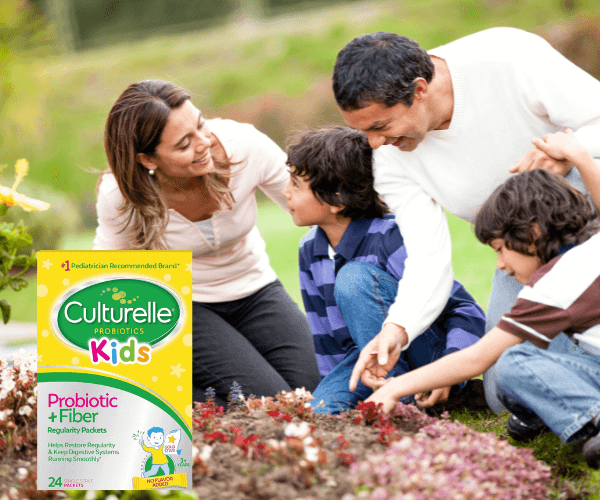Understand how to help constipation in children with practical tips and the power of probiotics. Ensure your child's digestive health with proven methods for gentle, effective relief and a happier tummy. Learn more about keeping your child's digestive system on track with expert insights.
Key Takeaways:
- Dietary Adjustments: Incorporating fiber-rich foods and ensuring adequate hydration can significantly alleviate constipation in children.
- Physical Activity: Regular exercise and active play can stimulate bowel movements and improve digestive health.
- Behavioral Strategies: Establishing a consistent bathroom routine and addressing any emotional stress can help manage and prevent constipation.
- Probiotics play a significant role in improving gut health and can help relieve constipation.
- Understanding the types of probiotics and their benefits can empower parents to make informed decisions for their children's digestive health.
Understanding Constipation in Children
Constipation in children is a common issue that can cause significant discomfort and distress.
It is characterized by infrequent bowel movements, hard stools, and difficulty passing stools.
Understanding the root causes of constipation is crucial for effective management and prevention.
Several factors can contribute to constipation in children, including dietary habits, lack of physical activity, and emotional stress.
Identifying these factors can help parents and caregivers implement appropriate strategies to alleviate the condition and improve the child's overall well-being.
Dietary Adjustments for Alleviating Constipation
One of the most effective ways to treat constipation in children with constipation is through dietary adjustments.
Increasing the intake of fiber-rich foods such as fruits, vegetables, whole grains, and legumes can promote regular bowel movement. Fiber adds bulk to the stool, making it easier to pass.

In addition to fiber, ensuring adequate hydration is essential. Encourage children to drink plenty of water throughout the day.
Dehydration can lead to hard stools and exacerbate constipation. Offering water-rich foods like cucumbers, watermelon, and oranges can also help maintain proper hydration levels.
The Role of Physical Activity
Physical activity plays a vital role in maintaining healthy digestion. Regular exercise stimulates the muscles in the intestines, promoting regular bowel movements.
Encourage children to engage in activities they enjoy, such as playing outside, riding a bike, or participating in sports.

Incorporating physical activity into the daily routine can be as simple as taking a family walk after dinner or having a dance party in the living room.
The key is to make movement fun and consistent, helping to keep the digestive system functioning smoothly.
Establishing a Bathroom Routine
Creating a consistent bathroom routine can help children develop healthy bowel habits.
Encourage your child to sit on the toilet at the same time each day, preferably after meals when the digestive system is most active. This routine can help train the body to have regular bowel movements.

Make the bathroom environment comfortable and stress-free. Provide a footstool to support the child's feet, ensuring they are in a natural squatting position.
This position can make it easier to pass stools and reduce the strain on the digestive system.
Addressing Emotional Stress
Emotional stress can significantly impact a child's digestive health. Anxiety, fear, and other emotional factors can lead to constipation. It's important to create a supportive and understanding environment where children feel comfortable discussing their feelings.
Encourage open communication and provide reassurance. If your child is experiencing stress related to school, friendships, or other aspects of life, addressing these issues can help alleviate constipation.
Consider seeking the guidance of a pediatrician or child psychologist if emotional stress is a significant concern.
The Importance of Hydration
Hydration is a key factor in preventing and managing constipation. Water helps soften the stool, making it easier to pass.
Ensure your child drinks an adequate amount of water each day, especially if they are active or live in a hot climate.

In addition to water, other fluids like herbal teas, diluted fruit juices, and clear soups can contribute to overall hydration.
Avoid excessive consumption of sugary drinks and caffeinated beverages, as they can lead to dehydration and worsen constipation.
Recognizing the Signs of Constipation
Being able to recognize the signs of constipation is crucial for timely intervention. Common symptoms include infrequent bowel movements, hard or dry stools, abdominal pain, and straining during bowel movements.
Children may also exhibit behavioral changes such as irritability or reluctance to use the bathroom.

If you notice these signs, it's important to address the issue promptly. Prolonged constipation can lead to complications such as anal fissures or fecal impaction.
Consulting with a pediatrician can help determine the best course of action and prevent further discomfort.
Over-the-Counter Remedies
In some cases, dietary and lifestyle changes may not be sufficient to relieve constipation.
Over-the-counter remedies such as fiber supplements, stool softeners, and mild laxatives can be used under the guidance of a healthcare professional.
These remedies can provide temporary relief and help establish regular bowel movements.

It's important to use these products as directed and not rely on them for long-term management. Overuse of laxatives can lead to dependency and other health issues.
Always consult with a pediatrician before introducing any new medication or supplement to your child's routine.
How Probiotics Can Help
Probiotics are live bacteria and yeasts that are beneficial for digestive health. They can help balance the gut microbiome, which is crucial for proper digestion and regular bowel movements.

Read more
Physician's Choice Probiotics for Kids is a specially formulated supplement designed to support your child's digestive and immune health with a blend of 10 probiotic strains and prebiotics.
This tasty chewable is perfect for daily use, ensuring your little ones stay healthy and happy.
Exclusive Insights:
Pros:
· 10 Probiotic Strains: Offers a diverse range of beneficial bacteria to support gut health.
· Prebiotics Included: Enhances the effectiveness of probiotics by providing essential nourishment.
· Tasty Chewable Form: Easy for kids to take, with a flavor they’ll love.
Cons:
· Price Point: Slightly more expensive compared to other kids' probiotics.
· Availability: May not be available in all local stores, requiring online purchase.
Customer Review:
"My 5-year-old used to have frequent tummy troubles, but since starting Physician's Choice Probiotics for Kids, she's been feeling great!
She loves the taste, and I love knowing she's getting the best support for her digestive health. Highly recommend for any parent looking to boost their child's gut health!"
Probiotics can be found in various foods, such as yogurt, kefir, and fermented vegetables, as well as in supplement form.
Introducing probiotics into a child's diet can help alleviate constipation by promoting a healthy balance of gut bacteria.
This balance can improve stool consistency and frequency, making bowel movements easier and more regular. Probiotics can be a natural and effective way to support a child's digestive health.
Types of Probiotics Beneficial for Children
There are several types of probiotics that can be particularly beneficial for children suffering from constipation.
Lactobacillus and Bifidobacterium are two of the most commonly recommended strains. These probiotics have been shown to improve gut health and promote regular bowel movements.

Read more
Ora Organic Probiotic Pixies with Probiotics for Kids are delightful, berry-flavored powder sticks designed to support your child's gut health and immune system.
These fun and tasty pixies are packed with organic probiotics, making them a kid-friendly way to promote overall wellness.
Exclusive Insights:
Pros:
· Kid-Friendly Flavor: Delicious berry taste that kids love, making it easy to incorporate into their routine.
· Organic Ingredients: Made with high-quality, organic probiotics, ensuring a clean and healthy supplement.
· Portable and Convenient: Individually packaged sticks are perfect for on-the-go use, whether at school or during travel.
Cons:
· Price Point: Slightly more expensive than some other probiotic options on the market.
· Flavor Preference: While many kids love the berry flavor, some might prefer a different taste.
Customer Review:
"My daughter absolutely loves Ora Organic Probiotic Pixies! She thinks they're a treat, and I love that they're packed with organic probiotics.
Her digestion has improved, and she hasn't had a cold since we started using them. These pixies are a win-win for both of us!"
Lactobacillus can be found in many fermented foods, such as yogurt and sauerkraut, while Bifidobacterium is often included in probiotic supplements.
It's important to choose high-quality probiotic products and consult with a healthcare professional to determine the best options for your child. Ensuring the right type and dosage of probiotics can maximize their benefits.
Incorporating Probiotics into Your Child's Diet
Incorporating probiotics into your child's diet can be simple and enjoyable. Many children enjoy yogurt, which is a natural source of probiotics.
Look for yogurt that contains live and active cultures, and consider adding fresh fruits for added fiber and flavor. Kefir, a fermented milk drink, is another excellent source of probiotics that children may enjoy.

Read more
Culturelle Kids Probiotic + Fiber Packets are a convenient and effective way to support your child's digestive health and regularity with a blend of probiotics and fiber.
These easy-to-use packets can be mixed into any cold drink or food, making them a hassle-free addition to your child's daily routine.
Exclusive Insights:
Pros:
· Dual Action Formula: Combines probiotics and fiber to support both digestive health and regularity.
· Convenient Packets: Easy to mix into drinks or food, perfect for busy parents and picky eaters.
· Clinically Proven Strains: Contains Lactobacillus GG, a well-researched probiotic strain for kids.
Cons:
· Taste Sensitivity: Some children may notice a slight taste when mixed with certain foods or drinks.
· Single-Use Packets: Can be less eco-friendly compared to bulk packaging.
Customer Review:
"My son has always had issues with constipation, but since we started using Culturelle Kids Probiotic + Fiber Packets, he's been so much more regular.
The packets are super easy to mix into his juice, and he doesn't even notice it. It's been a game-changer for us!"
For children who may be picky eaters, probiotic supplements can be a convenient alternative. These supplements come in various forms, including chewable tablets and powders that can be mixed into drinks or food.
Always follow the recommended dosage and consult with a healthcare provider to ensure the supplements are appropriate for your child's age.
Monitoring Progress and Adjusting as Needed
It's important to monitor your child's progress when introducing dietary changes and probiotics. Keep track of their bowel movements, noting any improvements or ongoing issues.
This information can help you determine whether the current approach is effective or if adjustments are needed.
If constipation persists despite dietary changes and probiotics, it may be necessary to seek further medical advice. A healthcare professional can provide additional guidance and recommend other treatments if needed.
Regular check-ins with a healthcare provider can ensure that your child's digestive health is on the right track.
When to Seek Medical Advice
While constipation is often manageable with home remedies, there are instances where medical intervention is necessary.
If your child's constipation persists despite dietary and lifestyle changes, or if they experience severe pain, blood in the stool, or other concerning symptoms, it's important to seek medical advice from your child's doctor.

A pediatrician can conduct a thorough evaluation to determine the underlying cause of constipation and recommend appropriate treatment.
In some cases, additional tests or referrals to specialists may be required to address more complex issues in your child's bowel movements.
Encouraging Healthy Eating Habits
Promoting healthy eating habits from a young age can help prevent constipation and support overall digestive health.
Encourage your child to eat a balanced diet that includes a variety of fruits, vegetables, whole grains, and lean proteins. Limiting processed foods and sugary snacks can also contribute to better digestive function.
Involve your child in meal planning and preparation to make healthy eating more enjoyable. Teaching them about the benefits of different foods and how they impact the body can empower them to make healthier choices independently.
Final Thoughts
Constipation in children is a common but manageable condition. By making dietary adjustments, encouraging physical activity, establishing a consistent bathroom routine, addressing emotional stress, and ensuring proper hydration, parents and caregivers can help alleviate constipation and promote healthy digestion.
Recognizing the signs of constipation and knowing when to seek medical advice are also crucial for effective management. With the right strategies and support, children can enjoy better digestive health and overall well-being.
FAQ's to help alleviate constipation in children
What are the best foods to help relieve constipation in children?
Fiber-rich foods such as fruits (apples, pears, berries), vegetables (broccoli, carrots, peas), whole grains (oatmeal, whole wheat bread), and legumes (beans, lentils) are excellent choices.
These foods add bulk to the stool and promote regular bowel movements.
How much water should my child drink to prevent constipation?
The amount of water a child needs can vary based on age, activity level, and climate. As a general guideline, children should drink at least 6-8 cups of water daily.
Encouraging water-rich foods and other hydrating fluids can also help maintain proper hydration.
When should I be concerned about my child's constipation?
If your child's constipation persists despite dietary and lifestyle changes, or if they experience severe pain, blood in the stool, or other concerning symptoms, it's important to seek medical advice.
A pediatrician can evaluate the situation and recommend appropriate treatment.
How long does it take for probiotics to work for constipation in children?
The time it takes for probiotics to work can vary depending on the individual child and the severity of constipation.
Some children may experience improvements within a few days, while others may take a few weeks. Consistency in taking probiotics and maintaining a healthy diet can help achieve the best results.
Are there any side effects of giving probiotics to children?
Probiotics are generally considered safe for children, but some may experience mild side effects such as gas or bloating initially. These side effects usually subside as the body adjusts.
It's important to choose high-quality probiotics and consult with a healthcare provider to ensure they are appropriate for your child.
Looking for the best products? We've got you covered! Our editors have handpicked each item on this list. EisonReports may receive a share of sales or compensation if you choose to make a purchase through the provided links. Reviews have been edited for brevity and clarity. Enjoy discovering products to enhance your life!








